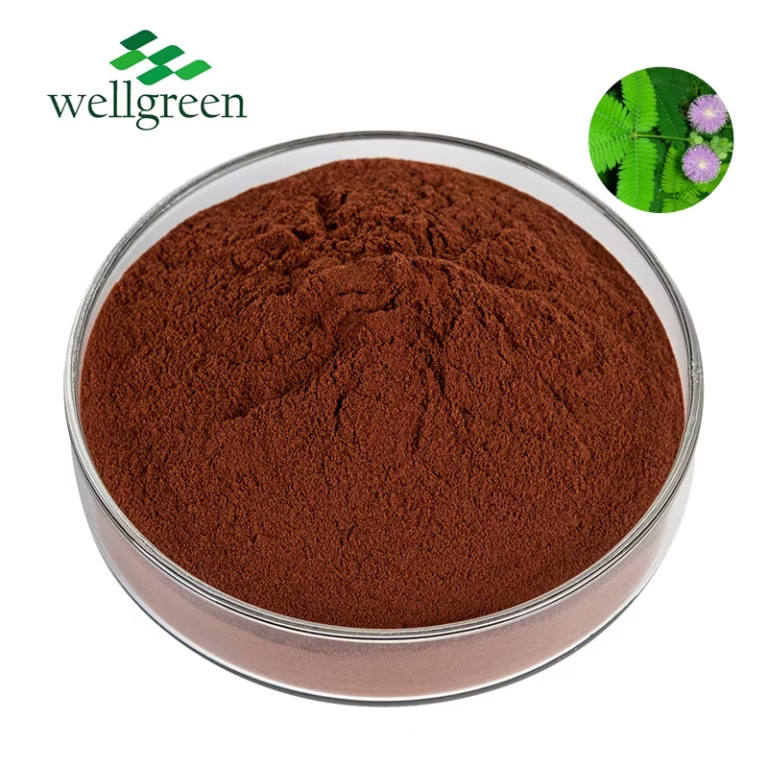
The root of Mimosa tenuiflora, commonly known as quebracho blanco, have been used for generations in traditional medicine across South America.
Ethnobotanical studies reveal the efficacy of M. tenuiflora extracts in treating a broad range of ailments, including infections.
Traditional healers utilize the extract in multiple forms such as tinctures to treat conditions.
Some key applications of M. tenuiflora include astringent effects, and it is also believed to possess anti-inflammatory properties.
Comprehensive Profiling of Mimosa tenuiflora Root Bark Extracts
This study focuses on investigating the phytochemical content of Mimosa tenuiflora root bark extracts. The extraction methods employed involved multiple solvents, including methanol. The resultant extracts were then subjected to a battery of analytical tools such as high-performance liquid chromatography (HPLC) to detect the predominant phytochemical constituents. Preliminary results reveal the occurrence of a diverse of secondary metabolites, including terpenoids, which are known for their pharmacological properties. This comprehensive phytochemical analysis aims to provide valuable insights into the efficacy of Mimosa tenuiflora root bark as a source of medicinal remedies.
Ancient Uses and Potential Medicinal Benefits of M. tenuiflora Root Bark
M. tenuiflora, a species renowned for its distinctive root bark, has been employed in traditional medicinal practices for epochs. Indigenous communities have long understood the healing properties of this potent resource. The root bark is traditionally processed and applied to address a variety of ailments, including digestive issues.
Contemporary research is commencing to uncover the efficacy of M. tenuiflora root bark in offering medicinal read more benefits. Studies have revealed that certain elements present in the bark may possess anti-inflammatory properties, affecting its potential to combat a broad array of diseases. Additionally, preliminary research suggests that M. tenuiflora root bark may also possess cognitive-enhancing effects, though more thorough studies are essential to substantiate these findings.
Pharmacological Activity of Mimosa tenuiflora: A Review of Root Bark Studies
Mimosa tenuiflora, commonly known the jurema shrub, has a profound history of folk medicinal use in South America. The root bark of this genus is particularly regarded for its diverse pharmacological properties. Numerous studies have analyzed the potential actions of M. tenuiflora root bark, revealing a range of compounds with significant biological activity.
- One aspect of particular interest is the immunomodulatory efficacy of M. tenuiflora root bark extracts.
- Initial data suggests that these extracts may modulate the inflammatory response, potentially providing relief from various inflammatory conditions.
- Additionally, studies have indicated that M. tenuiflora root bark may possess free radical scavenging characteristics, which could contribute to human health by counteracting oxidative damage.
The complex nature of M. tenuiflora root bark profile and its possibilities for therapeutic uses warrant further research. As research progresses, a more comprehensive understanding of the pharmacological properties of M. tenuiflora root bark may emerge, potentially leading to the development of novel and effective therapeutic interventions.
Procurement and Identification of Bioactive Compounds from *M. tenuiflora* Root Bark
This research focuses on the isolation of pharmaceutically active substances from the root bark of *M. tenuiflora*. Numerous extraction methods, including aqueous solutions, will be applied to isolate a variety of extracts. The characterization of these extracts will involve assays like spectroscopy and molecular characterization. The pharmacological activities of the isolated compounds will also be investigated using in vitro systems.
The objective of this research is to identify and characterize promising compounds from *M. tenuiflora* root bark with potential applications in drug development.
Examining the Anti-inflammatory and Antioxidant Properties of Mimosa tenuiflora Root Bark
Mimosa tenuiflora, commonly known as the Horse tree, is a plant native to tropical regions. Recent research has focused on its {potentialbenefits for human health, particularly concerning its immunomodulatory and free radical scavenging properties. The root bark of Mimosa tenuiflora is a rich reservoir of bioactive compounds such as alkaloids, which have been shown to exert potent effects against inflammation.
- Studies have demonstrated that extracts from Mimosa tenuiflora root bark can significantly reduce the production of inflammatory cytokines in both *in vitro* and *in vivo* models.
- Furthermore, these extracts have exhibited notable antioxidant effects by neutralizing harmful free radicals, protecting cells from oxidative stress.
These findings suggest that Mimosa tenuiflora root bark holds promise as a {natural remedy for various inflammatory and oxidative stress-related conditions. However, further research is needed to fully elucidate its mechanisms of action and optimize its therapeutic applications.
